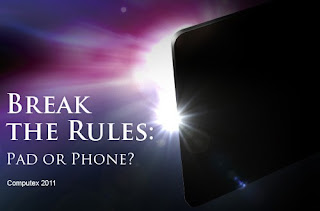After reading the article “Why We’re Hooked on Credit” (by Mike Zimerman) in the most recent edition of Men’s Health magazine, I thought it would be good to reflect on the concept of the American Dream. In particular, I want to review how our sense of the American Dream has become perverted through the rampant materialism around us. It should be considered American Dream 2.0 – something more sinister and dangerous than the previous edition.
Most of us know of the American Dream. Or at least most of us have heard of the term mentioned somewhere. The American Dream is essentially an inspiring goal for Americans and non-Americans for the past century or so. Everyone envisions owning a suburban house, two cars and, most importantly, being part of a loving family to enjoy these possessions. For many people, this is the utopia they crave for. Millions of immigrants took (and still take) the risk and traveled to the United States in order to pursue their American Dream. A captivating example is the story of Frank McCourt, as documented in his autobiographies “Angela’s Ashes” and “’Tis”. If we set aside our biased spectacles, the illegal immigrants crossing the border are pursing the same end. Otherwise, why would they leave behind their families and homes for a completely foreign land?
I can relate to this aspiration because I came to this country as an immigrant. To be more exact, my parents made the decision to come here in order to give their children a brighter future (yes, they wanted to further their careers too…). We regarded the United States as the land of opportunity, as well as a land of plenty. This is a place where there was no caste system or other kinds of artificial restrictions to impede one from becoming successful. Success is achievable as long as one has perseverance and work-ethic. I think the film “Pursuit of Happyness” exemplifies this belief – however dramatized Hollywood changed the original story.
Returning to the central thesis of this post, the reality of our notion of the American Dream has become something very different from the one described above. The previous American Dream focused on the happiness as derived from family and friends – with possessions such as houses and cars as secondary. In short, this first iteration of the American Dream emphasized the simplicity of belongings and fullness of relationships. But today we have added many items to the original list of a house and two cars, such as laptops, iPads, flat-screen TVs, and smartphones. While (thankfully) the requirements of hard-work and perseverance has not changed, this trend toward increasing the number of things necessary to fulfill the American Dream is worrying. Our happiness is slowly degenerating into an equation in which it is measured by the number of things we own. Zimmerman refers to this as “AmDream 2.0”.
What makes this trend worrisome is the growing preoccupation in people’s minds about what they do not have. We begin to feel a lack for belongings that effectively divorces us from the importance of human relationships. The goal and focus of our efforts become a preoccupation about how our possessions compare with that of friends and, shockingly, complete strangers. In effect, we create a dangerous arms race that pits everyone against everyone, the have-nots against the haves. Doesn’t this sound like something that comes out of the Communist Manifesto?
Furthermore, this mindset we foster of needing to validate our self-worth through our belongings cuts right into our self-esteem. We are no longer patriotic Americans in the land of opportunity, but as consumption-oriented humans with fevered egos. [Interestingly, in economics we almost always refer to the general public as “consumers”.] We feel that we have the right to own certain things, and in the process begin to forget that we have to earn the means from which to own. Most people do not like being reminded of the earning part and jump right into the owning – through charging their credit cards and taking on debt. This “jump” occurs because people emotionally fear the possibility they will never be able to afford certain things. Ultimately, this emotional fear (derived from seeking self-worth through belongings) can supersede the real fear of the consequences of debt. And here is a serious disconnect.
Although “Fight Club” is no longer one of my favorite movies, I remember the film for its assault on the consumption-glorifying part of our contemporary culture. In particular, I recall this line by the character Tyler Durden “You're not your job. You're not how much money you have in the bank. You're not the car you drive. You're not the contents of your wallet. You're not your fucking khakis. You're the all-singing, all-dancing crap of the world”. We tend to enjoy hearing these bold statements in movies but seldom reflect on their truthfulness. And I think this statement is very true – we are not our jobs, nor cars, nor clothes, nor money. Because all these things are temporal and could cease to exist at any moment. You can be laid-off, your car gets stolen, clothes dirtied, and money stolen.
The essence of the previous paragraph is that we would lead very different lives if we truly realized that things do not last forever. Our lives are limited to a few decades on this earth; in addition, the lives we lead are very fragile. Have you ever witnessed a fatal accident and wondering what if the corpse lying on the roadside had been you? If so, I think it would make one think twice before splurging on a sports car or a gigantic mansion. In the end, what matters is our relationships with one another and the unending joy that derives from this source.
[This caps the first post in a series on special topics about current issues in our society…]








